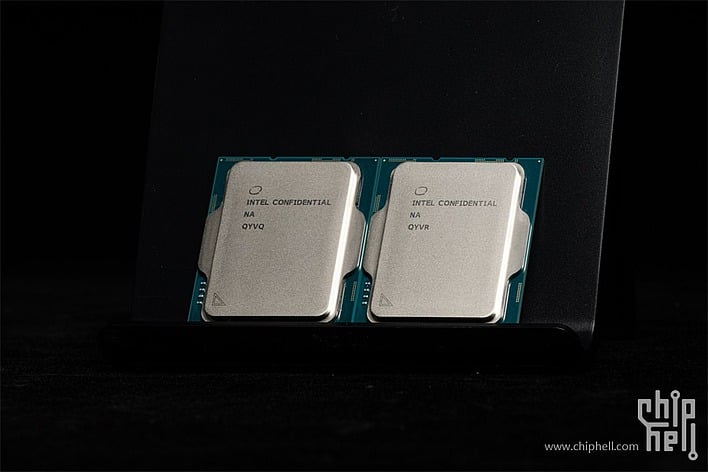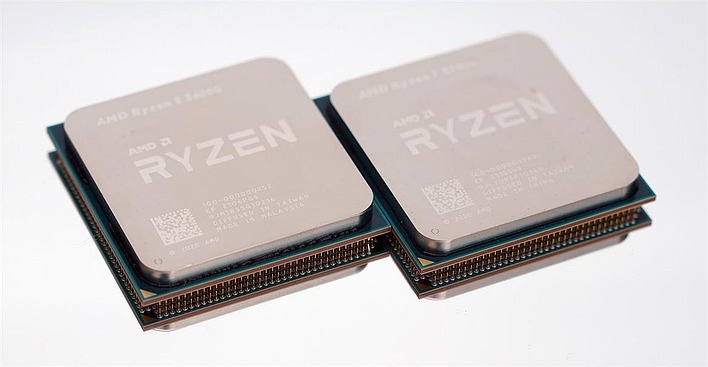Intel Alder Lake Core i5-12400 and Core i3 Models Show Strong Budget Performance In Benchmark Leak

Fortunately, a poster on Chinese-language hardware forum ChipHell named "热心市民描边怪" (which apparently translates to "Enthusiastic Citizens Stroke Monster," according to their profile on the site) has been kind enough to put up some pre-release reviews of the Core i5-12400, Core i3-12300, and Core i3-12100. These reviews were performed on Qualification Sample (QS) chips, which means they should be fairly representative of final performance.
Despite being essentially forum posts, the reviews are remarkably complete. Mr. Enthusiastic Citizens didn't just run a few benchmarks and call it a day; the reviews include photos of both sides of the chips, all of the hardware used in the test rigs (including high-end ASRock motherboards, fast Apacer NOX memory at 4266 MT/s, and a Radeon RX 6800 XT graphics card), and various benchmarks both synthetic and practical.
At least in this testing, the Core i5-12400 doesn't lose too much performance versus its more expensive 12600K sibling, unless the 12600K can bring its four extra cores to bear. The real interesting story here is the Core i3-12300, though. This quad-core chip will likely be priced around $150, and it offers single-threaded performance that matches or exceeds the Core i5-12400. Sure, the loss of two cores will hurt in a lot of tasks, but it clearly doesn't matter that much for gaming.
As note in the post, the Core i3 parts aren't going to face much competition from AMD. The company's only parts in the sub-$200 range are either OEM-only or based on older Zen 2 technology that struggles against Intel's extant low-end parts, to say nothing of these upcoming Alder Lake CPUs. The Core i3-12100 absolutely destroys the Ryzen 3 5350G in his testing, and all of the cheaper AMD CPUs that you can buy are slower than that processor.

He speculates on pricing, too. He comments that he expects the Core i5-12400 to debut at around 1200 RMB, or about $190 USD, although it's worth noting that he says the 12600K is currently going for about 1600 RMB, which is only $250—about $75 cheaper than you can find one in the US. For the Core i3 CPUs, he expects the i3-12300 to go for around 1000 RMB (~$150 USD), while the i3-12100 should be just a touch cheaper than that.
As for when the rest of us can get our hands on these parts, Enthusiastic Citizens (etc) states confidently that all of these parts, as well as lower-end motherboards based on the B660 and H610 chipsets, should launch on January 4th.


